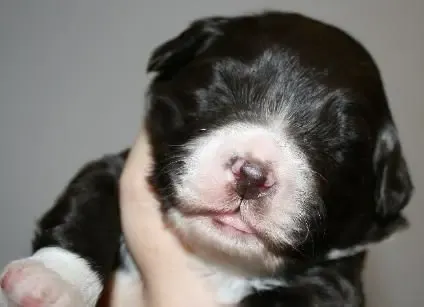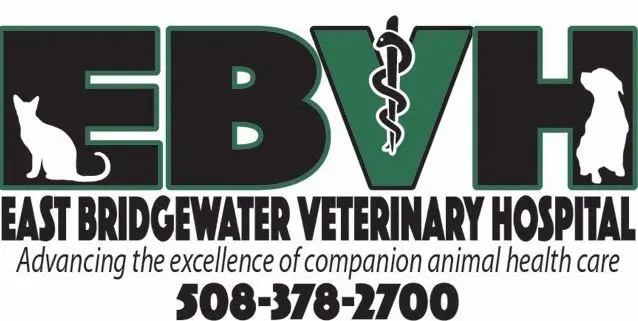Embarking on a breeding journey for your beloved canine companion requires careful planning and expert veterinary support. For those searching for “Reproductive Services For Dogs Near Me,” understanding the specialized care available is paramount to ensuring the health and success of both the parents and future litters. Professional canine reproductive services offer a comprehensive approach, from pre-breeding health evaluations to advanced artificial insemination techniques and meticulous pregnancy management. These specialized clinics are equipped with board-certified veterinarians and cutting-edge technology to guide breeders through every stage, optimizing outcomes and addressing potential challenges.
When you’re looking for a canine fertility clinic near me, you’re seeking a partner who can provide unparalleled expertise in canine reproduction. This includes specialists in obstetrics, neonatology, pediatrics, and medical genetics, ensuring that every aspect of your dog’s reproductive health is managed with precision and care. These services are designed to support breeders in making informed decisions, minimizing risks, and achieving successful pregnancies and healthy puppies.
Understanding Comprehensive Canine Reproductive Care
Successful dog breeding hinges on a thorough understanding of canine reproductive health, supported by a range of specialized services. These services go beyond routine veterinary care, focusing specifically on optimizing fertility, managing pregnancies, and ensuring the well-being of newborn puppies.
Comprehensive Pre-Breeding Consultations and Health Clearances
A crucial first step in any breeding program is a detailed pre-breeding examination. This involves a comprehensive physical assessment to identify any underlying health issues that could impact breeding success or the health of offspring. During this consultation, a veterinarian will work with you to develop a tailored breeding plan, addressing specific concerns related to your dog’s breed and individual history.
Key health clearances are also vital to prevent the transmission of genetic conditions and infectious diseases. These often include:
- Orthopedic Foundation for Animals (OFA) Evaluations: Hip and elbow X-rays with sedation, patella certification, and cardiac auscultation (listening to the heart) are common to screen for hereditary orthopedic and cardiac issues.
- Thyroid Testing: To assess thyroid function, which can affect fertility.
- Genetic Disease Testing: Blood draws for breed-specific genetic screening to avoid passing on known inherited conditions.
- Brucellosis Testing: A negative Brucellosis test within 30 days of breeding is mandatory for both the bitch and stud dog to prevent this highly contagious bacterial infection that causes infertility and abortions.
Essential Vaccinations and Preventative Measures
Maintaining the overall health of your breeding dogs is fundamental. Both the bitch and stud dog must be up-to-date on core vaccinations, including rabies and distemper (DA2P). Additionally, preventative vaccines such as Lyme, Lepto, and Bordetella may be recommended based on lifestyle risks. Regular heartworm and tick tests (e.g., Flex4, SNAP, or 4DX test) within 12 months of breeding are also required, along with current heartworm and flea/tick prevention. Permanent identification, such as a microchip, is highly recommended for all breeding animals.
 Golden Retriever mother gently caring for her adorable newborn puppies
Golden Retriever mother gently caring for her adorable newborn puppies
Key Services Offered for Successful Dog Breeding
Specialized veterinary hospitals provide an array of advanced dog breeding insemination services to maximize the chances of a successful pregnancy and healthy litter. These services are tailored to the unique needs of each breeding pair.
Precise Ovulation Timing and Artificial Insemination
Accurate ovulation timing is critical for successful breeding. Veterinary reproductive specialists utilize in-house progesterone testing, offering same-day results to pinpoint the optimal breeding window. This precision is especially important for artificial insemination (AI) procedures. AI options include:
- Vaginal Insemination: A less invasive method where semen is deposited directly into the vagina.
- Transcervical Insemination (TCI): Involves using an endoscope to guide a catheter through the cervix, allowing semen to be deposited directly into the uterus, bypassing the cervix.
- Surgical Insemination: A more invasive procedure performed under anesthesia, where semen is surgically implanted directly into the uterine horns.
For breeders planning future litters or working with stud dogs at a distance, semen services are invaluable. This includes semen evaluation for viability and motility, fresh chilled semen shipments, and cryopreservation (freezing) for long-term storage, ensuring genetic lines can be preserved and utilized across geographical barriers.
Advanced Pregnancy Management and Neonatal Care
Once breeding has occurred, diligent pregnancy evaluation and management are essential. Ultrasound diagnosis is performed early to confirm pregnancy and estimate gestational aging. Near term, digital X-rays are utilized for accurate litter size counts, which is crucial for preparing for whelping. Reproductive veterinarians are well-versed in the risks and benefits of medications during pregnancy and lactation, providing expert guidance to optimize the health of the pregnant bitch. Nutritional discussions, including helpful and potentially harmful foods and supplements, are also a standard part of prenatal care.
After birth, specialized neonatal and pediatric care ensures the health and vitality of the puppies, addressing any immediate concerns and guiding owners on proper post-natal care.
 A veterinarian performing an ultrasound on a pregnant dog to monitor the puppies' development
A veterinarian performing an ultrasound on a pregnant dog to monitor the puppies' development
Specialized C-Section Procedures
In some cases, a planned or emergency C-section may be necessary. Elective cesarean sections are typically scheduled around 63 days from ovulation, based on progesterone levels. However, many specialized clinics, particularly those offering advanced reproduction veterinarian near me services, have specific requirements for elective C-sections. These often include having had a pre-breeding examination, ovulation timing, breeding services, pregnancy ultrasound, and pregnancy X-ray performed at their facility. This ensures continuity of care and that all necessary pre-surgical diagnostics are on record.
It is also important to note that while these clinics strive to accommodate client needs, their ability to handle emergency C-sections for patients not actively involved in their full reproductive program may be limited due to staff and scheduling constraints.
Requirements for Accessing Specialized Reproductive Care
Accessing top-tier reproductive services typically involves adhering to specific guidelines established by the veterinary hospital. These requirements ensure the highest standard of care and foster successful breeding outcomes.
Medical Records and Vaccinations
Clients seeking specialized reproductive services, especially if the facility is not their primary veterinarian, must submit complete medical records from their primary care provider. This includes ensuring both the bitch and stud dog are up to date on rabies vaccination, with a legal certificate provided (receipts or reminders are not accepted).
Brucellosis Testing and Registration
A negative Brucellosis test performed within 30 days of breeding is a non-negotiable requirement for all breeding services, for both the male and female dog. Additionally, a copy of the registry certificate (e.g., AKC registration certificate) for both animals must be supplied to the veterinary hospital.
Age and Prior Service Stipulations
For ovulation timing and assisted breeding services, both the bitch and stud dog generally must be a minimum of 18 months (1.5 years) old. As mentioned previously for elective C-sections, clinics often reserve these procedures for current clients who have undergone pre-breeding examinations, ovulation timing, pregnancy confirmation via ultrasound, and litter size confirmation via X-ray at their facility. For those seeking a vca hospital near me or similar specialized clinic, it’s always best to inquire about their specific policies regarding eligibility for advanced services.
 Exterior view of a modern and welcoming veterinary hospital building, ready to serve pets and their owners
Exterior view of a modern and welcoming veterinary hospital building, ready to serve pets and their owners
Conclusion
Finding reliable “reproductive services for dogs near me” is a critical step for any responsible dog breeder. By partnering with a dedicated veterinary reproductive specialist, you gain access to unparalleled expertise, advanced diagnostic tools, and comprehensive care tailored to your dog’s breeding journey. From thorough pre-breeding evaluations and precise ovulation timing to advanced artificial insemination techniques and meticulous pregnancy management, these services provide the foundation for successful breeding and healthy, thriving puppies. Prioritizing expert veterinary care ensures that every stage of canine reproduction is handled with the highest standards of professionalism and compassion. We look forward to working with you to accomplish your exciting breeding plans and ensure the best possible outcome for your canine family.
Further Resources
- Birthing Puppies by Wendy Brooks DVM, DABVP – https://veterinarypartner.vin.com/default.aspx?pid=19239&id=4951546
- Dog Whelping: The Complete Guide: By Dr. Greer and the Revival Education Team – https://www.revivalanimal.com/learning-center/dog-whelping-the-complete-guiderevival-animal-health
- Pregnant Dog Care: by Wendy Brooks, DVM, DABVP – https://veterinarypartner.vin.com/default.aspx?pid=19239&id=4951916
- American Kennel Club – Artificial Insemination Information – https://www.akc.org/register/information/artificialinsemination/
- American Kennel Club – Deciding the Best Method for Artificial Insemination – https://www.akc.org/expert-advice/dog-breeding/deciding-bestmethod-artificial-insemination/
- Estrus Cycles in Dogs: Breeding, Care and Wellness: by Cheryl Yuill, DVM, MSc, CVH- https://vcahospitals.com/know-your-pet/estrus-cycles-in-dogs
- American Kennel Club – AKC’s Guide to Responsible Dog Breeding – https://www.akc.org/breeder-programs/breeder-education/akcsguide-responsible-dog-breeding/
- The Important Role of Breeders in Getting Puppies Off to a Healthy Start: https://www.akc.org/expert-advice/dog-breeding/important-role-breeders-gettingpuppies-off-healthy-start/
- How long should puppies stay with their mother? : https://www.vet.cornell.edu/departments-centers-and-institutes/riney-canine-healthcenter/health-info/how-long-should-puppies-stay-their-mother
